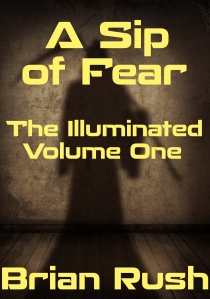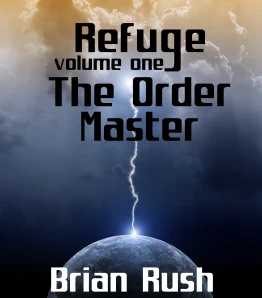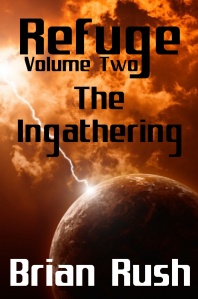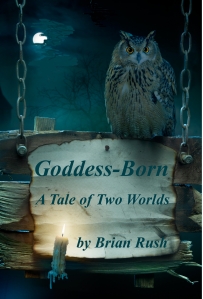 When we say the words, “I know that,” we can refer to one of two very distinct things. On the one hand, we can be talking about a proposition, something that can be expressed in words or symbols.
When we say the words, “I know that,” we can refer to one of two very distinct things. On the one hand, we can be talking about a proposition, something that can be expressed in words or symbols.
“The Earth is the third planet from the sun.”
“Yes, I know that.”
There’s no need to take a telescope and replicate the observations of the early astronomers who figured out the order of planetary orbits. All you have to do is to read about it. The words and numbers convey the concept perfectly and precisely, and so when you repeat them, you give the knowledge to someone else, with no meaning lost. This is what might be called “propositional knowledge.”
On the other hand, we can be talking about what it’s like to experience something. Unlike propositional knowledge, this second sort of knowing can’t be expressed in words or symbols, unless one is talking to someone who already knows it, and even then one is forced to use metaphor.
“Being in love is like you’re in a binary orbit, the two of you forming a common center of gravity.”
“Yes, I know that.”
But you can only say “Yes, I know that,” if you’ve been in love. Otherwise, the statement makes no sense. Two people aren’t in a literal binary orbit with a common center of gravity; both of them are part of the Earth’s gravitational system and the influence of their masses on one another is trivial. But if you’ve been in love, you know what the statement means, because you know what being in love feels like.
Using the words above, talking about binary orbits, or any other metaphors for being in love — a passage of music in the heart; a burning in the blood; two bodies and hearts merged as one — doesn’t convey knowledge. If someone has never been in love, these words convey nothing but confusion. What it’s like to be in love can be known, but it’s non-propositional knowledge in that it can’t be literally expressed or communicated. It’s not reducible to a proposition. You can’t learn it by hearing it from someone else. You must experience it yourself directly.
These two types of knowing are communicated in different ways, and they are also acquired in different ways.
Detachment and Immersion
Propositional knowledge is gained in a detached fashion. One does not participate. One observes, and as nearly as possible one reduces the effect of one’s presence to nil, so that what one observes can be seen on its own, without that influence. (Of course, it’s not possible to reduce the effect of observation all the way to zero, but that limit is only important in quantum mechanics.)
The goal of detached knowing is to create propositions about what is observed. These propositions can be combined into a cognitive model that describes the phenomenon or phenomena. Models can be used to generate an overall theory. This is, more or less, the scientific method.
But as useful as detached observation is for purposes of gaining propositional knowledge, it is no good when it comes to non-propositional knowledge. That requires another and in some ways opposite approach: immersive knowing.
Immersion is the inverse of detachment. Instead of observing, one participates. One is a part of what is experienced, and so the emotional side of things is all-important. You don’t try to reduce your own effect on a phenomenon, because you are part of the phenomenon and you are trying to understand what it is like to be in that place. Having plunged in and experienced something, you then know what it’s like to do it. But this does not result in a proposition. You know, but you can’t tell anyone else. You can give hints. You can use metaphor. You can also describe how to go about gaining the same understanding that you have achieved. But you can’t just tell someone what it’s like, and have that person know and understand just by listening to you.
Detached knowing can be communicated. Immersive knowing must be gained anew by each person.
Just One is Incomplete
We have achieved so much in the way of detached knowing, and also we are so bound up in a world constructed of words and symbols, that it’s tempting to think of this as the only form of knowing, but the truth is that if all you have is detached, propositional knowledge, then you do not know:
- How moving a piece of music is for you.
- What it’s like to achieve something difficult or challenging.
- The importance of real friendship.
- The intensity of love for a child.
- The delicious relief of spring after a hard winter.
- The delights of being mildly intoxicated.
- The languid bliss after really great sex.
If you don’t know these things, or any other form of immersive and non-propositional knowing, then clearly your understanding of the world is sadly incomplete, no matter how elegant the structure of your scientific or philosophical theory. It’s not that there are things which can only be understood by immersion. It’s more than immersion provides a different way to know and understand the same things that can also be approached by detached methods, and your knowledge of these same things is incomplete without both.
Immersion and Spirituality
It’s obvious that spiritual experience provides immersive knowing rather than detached knowing, and that this knowledge is non-propositional, but to treat it otherwise is a common mistake. The essence of fundamentalism is to treat religious belief as a set of propositions, all reasoned logically from an ultimate source, which is usually a sacred writing. This can result in creationism and other very bad science. It also results in very bad religion shorn of spirituality.
We can (imperfectly) know the reality which underlies such metaphors as “God” or “the cosmic intelligence” or “Brahman.” But this is not propositional knowledge. It’s not something we can communicate to someone else, so that understanding is conveyed without loss of meaning. As such, it’s not realistic to ask someone who has not undergone the type of spiritual experience which conveys understanding to believe anything. It’s not possible for them to meaningfully either believe or disbelieve, because it’s not possible for them to understand.
The most that can be communicated, aside from poetry and myth, is methods and techniques for altering consciousness and achieving spiritual experience, and hence understanding, for oneself. That’s the nature of immersive knowing and non-propositional knowledge. It’s inescapable.








